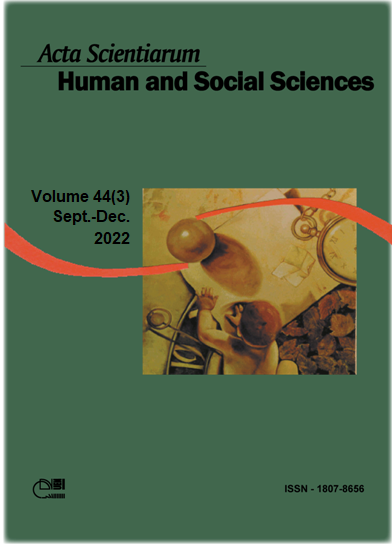Ernst Cassirer e a objetividade das Ciências Culturais
Résumé
O presente artigo consiste na apresentação e na análise de elementos da filosofia de Ernst Cassirer a partir dos quais o problema da objetividade das Ciências Culturais pode ser formulado e, em certa medida, respondido. Tais elementos são encontrados nos estudos que compõem a Lógica das Ciências Culturais, de 1942, obra da fase final da produção intelectual do autor, a saber: i) a fenomenologia pré-conceitual, que está na base da diferença entre as ciências naturais e as ciências da cultura; ii) as distinções entre o conceito natural e o conceito cultural, bem como a importância das noções de ‘forma’ e ‘estilo’ para as ciências culturais e iii) a centralidade da noção de forma e como isto reconfigura a noção de causa no interior das ciências não naturais.
Téléchargements
DECLARAÇÃO DE ORIGINALIDADE E DIREITOS AUTORAIS
Declaro que o presente artigo é original, não tendo sido submetido à publicação em qualquer outro periódico nacional ou internacional, quer seja em parte ou em sua totalidade.
Os direitos autorais pertencem exclusivamente aos autores. Os direitos de licenciamento utilizados pelo periódico é a licença Creative Commons Attribution 4.0 (CC BY 4.0): são permitidos o acompartilhamento (cópia e distribuição do material em qualqer meio ou formato) e adaptação (remix, transformação e criação de material a partir do conteúdo assim licenciado para quaisquer fins, inclusive comerciais.
Recomenda-se a leitura desse link para maiores informações sobre o tema: fornecimento de créditos e referências de forma correta, entre outros detalhes cruciais para uso adequado do material licenciado.


























